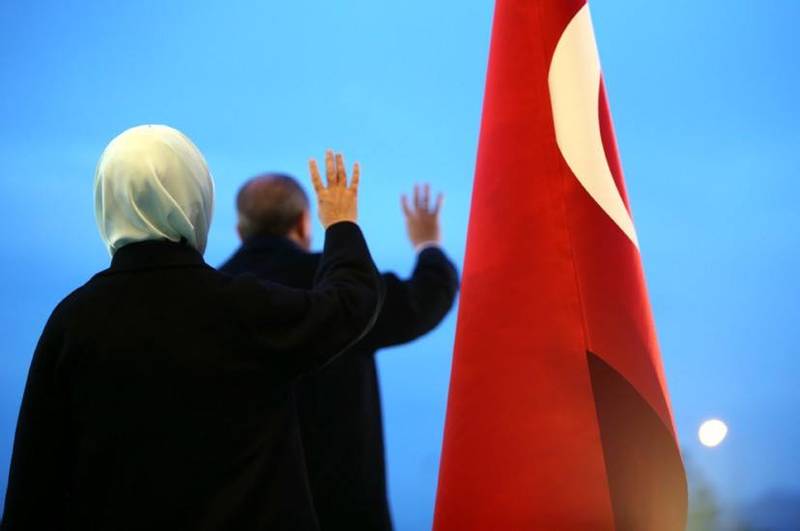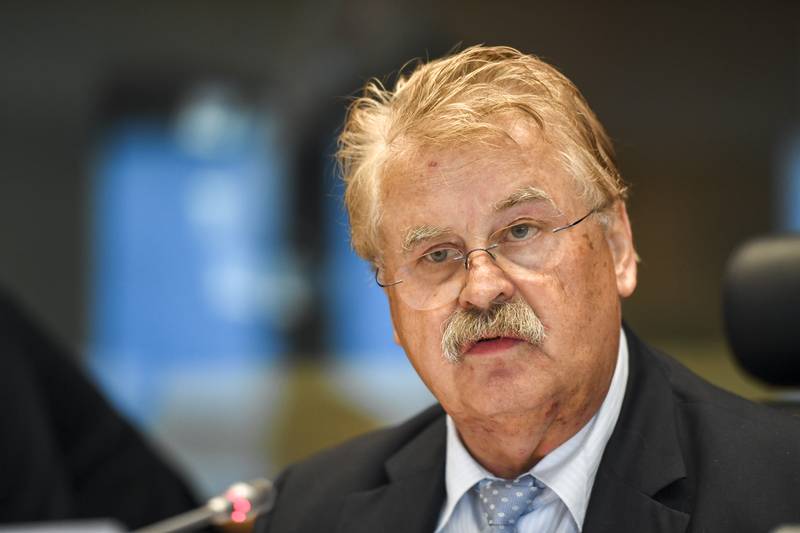Turkey’s Visa Liberalisation – Benefits and Problems
Zhaneta Kuyumdzhieva, trainee, July 27, 2012
 As euinside already wrote, at the 50th Association Council on 22 June, will was clearly demonstrated for the start of a process of liberalisation of the visa regime with Turkey. The Vienna based research institute ESI (European Stability Initiative), specialised in Balkan topics, sees nine reasons to apply in practise this intention. Besides the always good effects from integration action (improvement of certain internal policies, alignment with European practises, strengthening of security and, of course, progress towards EU membership), Turkey will get what it needs – more space. Because, if the European countries that aspire EU membership see a chance for securing resources for better economic performance in the full membership, for Ankara this is an opportunity to spread its indisputable demographic and economic potential. In this sense, the analysis of ESI appears to be concerned to present the benefits for the EU following the visa liberalisation with Turkey rather than the benefits for Turkey itself because the latter are very obvious.
As euinside already wrote, at the 50th Association Council on 22 June, will was clearly demonstrated for the start of a process of liberalisation of the visa regime with Turkey. The Vienna based research institute ESI (European Stability Initiative), specialised in Balkan topics, sees nine reasons to apply in practise this intention. Besides the always good effects from integration action (improvement of certain internal policies, alignment with European practises, strengthening of security and, of course, progress towards EU membership), Turkey will get what it needs – more space. Because, if the European countries that aspire EU membership see a chance for securing resources for better economic performance in the full membership, for Ankara this is an opportunity to spread its indisputable demographic and economic potential. In this sense, the analysis of ESI appears to be concerned to present the benefits for the EU following the visa liberalisation with Turkey rather than the benefits for Turkey itself because the latter are very obvious.
The issue that is definitely a problem and is being pointed out as one of the main reasons is the Greek-Turkish land border. It turns out that it is the preferred “entrance” for illegal immigrants into the EU. In 2010 47 700 people were intercepted there mostly from Bangladesh, Afghanistan and Pakistan, and in 2011 their number rise to 55 000. The statistics are particularly important because, aside from being the south-eastern border of the EU, Greece is a border of the Schengen area, too. The ESI report points out that Greece’s ability to cope with this problem is linked to the issue of Bulgaria’s and Romania’s joining the free movement area.
Being outside Schengen and performing border checks these two countries serve currently as a “safety belt” against illegal immigrants coming from Greece toward the rest of the EU. If the borders were open our southern neighbour would have become even more attractive to illegal immigration from outside EU. The problem here, however, is not related only to the statistics that clearly shows Greece's inability to secure EU’s external borders and, possibly, the lack of will from the side of Turkey to make efforts to limit the illegal influx. The report is entirely justified in asking what happens with the immigrants and the refugees afterwards.
Greece is unable to provide minimum conditions in the special refugee centres where the conditions do not correspond with the requirements of the European Convention on Human Rights. The cooperation with Turkey in securing their common border will allow Greece to focus on establishing effective internal practises for immigrants and refugees and thus will contribute to the security of the entire EU. The visa liberalisation process will provide an incentive for Turkey, too, to improve its policy on human rights.
On the one hand, the problems in this regard are manifested through the numbers of asylum applications filed by Turkish citizens in the EU. In the period 2008–2011 they varied between 6400 and 7100. 10-13% of the applications are being approved on first instance. With the start of the visa liberalisation process Turkey will be obliged to invest more effort in eliminating the reasons for its citizens to seek asylum in the EU. On the other hand, the policy vis-a-vis the foreign citizens applying for protection in Turkey is also not sufficiently effective. By January 2012 the registered refugees in the country have been 14 465 and the asylum seekers 10 964. Almost all of them originate from countries outside Europe - mostly from Iraq, Iran and Afghanistan.
The asylum seekers in Turkey have to apply before the UN refugees’ agency as, according to the “geographic limitations” of the 1951 Geneva Convention, Turkey is allowed to provide asylum only to citizens of the Council of Europe member states. The procedure is clumsy and ineffective. Until receiving asylum the refugees have often to find an illegal or low-paid job. A couple of years ago a draft legislation was prepared to regulate pending issues with regard to the asylum procedure but the bill stuck in Parliament. The start of Turkey’s commitments under the visa liberalisation with EU will force the country to adopt such a legal act.
The rest of the provisional reforms are linked to the efforts to combat organised crime, human and drugs trafficking, corruption and close partnership with some particular EU bodies such as Eurojust and Europol (in the domain of fighting heavy trans-border organised crime) and Frontex (for closer cooperation in migration, security and border issues). An important aspect of Turkey’s commitments is modernisation of border checkpoints, introduction of biometric passports, full application of the readmission agreements etc.
Finally, the analysis shifts the focus from security to the economic impact of the visa liberalisation and studies the chances for progress in the EU-Turkey relations during the Cyprus presidency. An additional reason that could possibly boost the process of visa liberalisation is the disappointment of the Turkish authorities and of the citizens about the already applied visa liberalisation on some Western Balkan countries. Progress here would give a new impetus to the relations and would disperse the doubts about a double-standard policy toward the candidate countries.
Despite that Ankara appeared on a couple of occasions to be losing interest in  the EU and to re-direct its attachments toward BRICS, the achievements under the “positive programme” and the intention for cooperation, demonstrated at the last Association Council, show that there is some will for progress. If currently one of EU's motives to liberalise its visa regime with Turkey is Ankara’s assistance in securing its external border (Greece), we should probably ask ourselves: if we have problems now, when bordering with a friendly and relatively democratic state, what would happen when on the other side of EU’s border (in case of Turkey’s full EU membership) are Syria, Iran and Iraq?
the EU and to re-direct its attachments toward BRICS, the achievements under the “positive programme” and the intention for cooperation, demonstrated at the last Association Council, show that there is some will for progress. If currently one of EU's motives to liberalise its visa regime with Turkey is Ankara’s assistance in securing its external border (Greece), we should probably ask ourselves: if we have problems now, when bordering with a friendly and relatively democratic state, what would happen when on the other side of EU’s border (in case of Turkey’s full EU membership) are Syria, Iran and Iraq?
 Donald Tusk, Boyko Borissov | © Council of the EU
Donald Tusk, Boyko Borissov | © Council of the EU | © Turkey Presidency
| © Turkey Presidency Elmar Brok | © European Parliament
Elmar Brok | © European Parliament